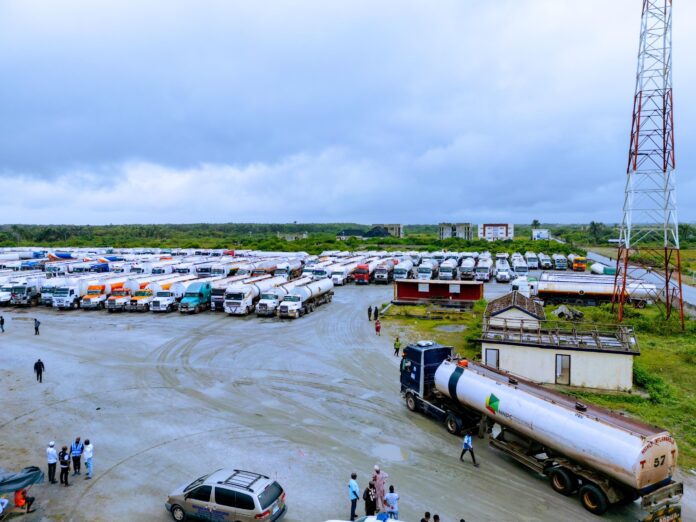In a significant development following Nigeria’s full deregulation of petrol prices, the Independent Petroleum Marketers Association of Nigeria (IPMAN) has announced that oil marketers will now have the freedom to import cheaper petrol from various sources. This comes as the Nigerian National Petroleum Company Limited (NNPCL) is no longer the sole buyer of petrol from the Dangote Refinery, marking a major shift in the country’s oil industry.
IPMAN’s statement comes amid a 15 percent increase in petrol prices announced by the NNPCL. The price of petrol in Lagos has surged to N998 per litre, while Abuja residents now pay N1,030 per litre. As petrol prices continue to rise, IPMAN believes that the open market will provide an opportunity for marketers to source cheaper petrol from local and international suppliers, thereby increasing competition.
Speaking on the matter, IPMAN’s Public Relations Officer, Chief Chinedu Ukadike, said that marketers are no longer restricted to purchasing petrol from the NNPCL and can now explore other options to obtain products at more competitive prices.
He highlighted the uncertainty that has surrounded petrol pricing decisions in recent months, noting that marketers have often been left in the dark regarding the factors driving price changes.
“The situation has been shrouded in secrecy, but with full deregulation in place, marketers will now have the freedom to import petrol. We will see whether Dangote Refinery offers the best price or if other suppliers provide a better deal,” Ukadike stated.
Ukadike’s comments come as Nigeria adjusts to the new reality of deregulated petrol pricing, a move that was largely expected following the removal of fuel subsidies earlier this year. Deregulation allows market forces to determine petrol prices, ending decades of government control over petrol pricing.
While IPMAN sees potential benefits in deregulation, tensions remain between independent marketers and the NNPCL. On the same day that IPMAN discussed the possibility of importing cheaper fuel, the association’s president, Alhaji Abubakar Maigandi Shettima, demanded a refund of N15 billion from the NNPCL. According to Shettima, independent marketers had paid for petrol orders but were not supplied with the product.
In an interview with Channels TV, Shettima expressed frustration over the NNPCL’s pricing structure, particularly the fact that independent marketers were asked to pay additional amounts for petrol, even after they had made initial payments. He argued that if the NNPCL’s prices are higher than those of other suppliers, such as the Dangote Refinery, the NNPCL should refund the payments made by independent marketers.
“The NNPCL cannot continue to ask for additional payments when they have not even supplied the petrol that marketers have already paid for,” Shettima said.
He further warned that if the situation is not addressed, it could create significant challenges for independent marketers, who have already been struggling to adjust to the new deregulated environment.
Despite the growing concerns expressed by IPMAN, an industry expert, who chose to remain anonymous, faulted the claims made by the oil marketers. According to the expert, the NNPCL does not conduct business directly with IPMAN or any other associations. Instead, the NNPCL deals strictly with individual companies that have followed the necessary procedures to obtain fuel from the company.
“NNPCL does not have a business relationship with IPMAN. The association did not fill out the required forms or pay to lift petrol from NNPCL,” the expert said.
He further explained that NNPCL’s business model is based on engaging with companies rather than associations like IPMAN. According to him, marketers who want to source products from the NNPCL need to apply as individual companies and follow due process, including payment for fuel supplies.
This explanation highlights a gap in understanding between IPMAN and the NNPCL, with marketers pushing for a more transparent relationship while the NNPCL maintains its stance of only dealing with duly registered companies.
Deregulation has been a hot topic in Nigeria, especially following the removal of the long-standing fuel subsidy in May 2023. President Bola Tinubu’s administration took the bold step of ending the subsidy, citing its unsustainable cost to the national economy. The decision was met with mixed reactions, as many Nigerians welcomed the government’s commitment to addressing the country’s economic challenges, while others feared the impact of rising fuel prices on their daily lives.
Since the subsidy removal, petrol prices have fluctuated significantly, with some regions seeing steep increases. The NNPCL’s recent price hike to N998 per litre in Lagos and N1,030 per litre in Abuja is the latest example of these rising costs.
Deregulation has allowed market forces to determine petrol prices, which means that prices will now depend on factors such as global oil prices, refining capacity, and transportation costs. While proponents of deregulation argue that it will eventually lead to greater efficiency and competition in the market, critics worry that it will lead to higher costs for consumers in the short term.

